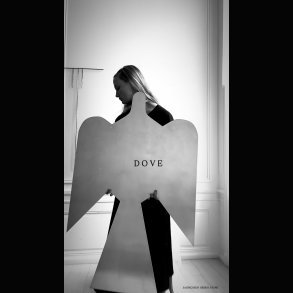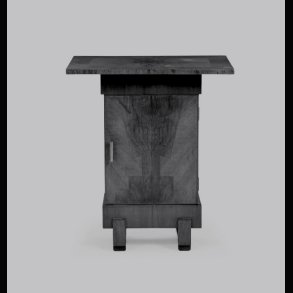EERO SAARINEN 1910 - 1961 . BY KNOLL
MARMOR :
HVID / LYSEGRÅ / STA : Statuarietto // hvid med lysegrå .
HVID / GRÅ / W: Arabescato // hvid med grå /sort . markant marmor .
IVORY HVID / IW: calacatta // cremehvid med årer fra gul til grøn og antydninger af rødbrun / lysbrun.
BRUN / B: Emperador brun / med tilfældig lys brun eller / og hvid marmorering.
SORT / N: Nero Marquina // sort med hvid.
GRØN / VA: Verde Alpi // grøn, nuancer varierer i tone og intensitet.
LAMINAT : HVID ELLER SORT
LAKERET : HØJGLANS LAKERING I HVID ELLER SORT
FINER : VALNØD, TEAK , SORTBEJDSET EG, NATUR EG OG SANTOS PALISANDER .
BASE : STØBT ALUMINIUM . I SORT ELLER HVID . BESKYTTENDE COATING I RILSAN .
EERO SAARINEN . FI / USA .
Through his work as an architect and designer, Eero Saarinen was a prime mover in the introduction of modernism into the American mainstream. Particularly affecting were the organic, curvilinear forms seen in Saarinen’s furniture and his best-known structures: the gull-winged TWA Flight Center at John F. Kennedy airport in New York (opened 1962), Dulles International Airport in Virginia (1962) and the Gateway Arch in St. Louis, Missouri (1965).
Saarinen had a peerless modernist pedigree. His father, Eliel Saarinen, was an eminent Finnish architect who in 1932 became the first head of the Cranbrook Academy of Art in suburban Detroit. The school became synonymous with progressive design and decorative arts in the United States, and while studying there the younger Saarinen met and befriended several luminaries of mid-century modernism, among them Harry Bertoia, and Charles and Ray Eames.
At Cranbrook, Saarinen also met Florence Schust Knoll, who, as director of her husband Hans Knoll's eponymous furniture company, would put Saarinen’s best designs into production. These include the “Grasshopper” chair, designed in 1946 and so named because its angled bentwood frame resembles the insect; the “Tulip” chair (1958), a flower-shaped fiberglass shell mounted on a cast-aluminum pedestal; and the lushly contoured “Womb” lounge chair and ottoman (1948). In his furniture as in his architecture, the keynotes of Eero Saarinen’s designs are simplicity, strength and grace.
Over the next 15 years Saarinen designed many of the most recognizable Knoll pieces, including the Tulip chairs and tables, the Womb chair, and the 70 series seating collection. Eero, who was known for being obsessed with revision, took a sculptural approach to furniture design, building hundreds of models and full scale mock-ups to achieve the perfect curve, find the right line, and derive the most pleasing proportions. His designs, which employed modern materials in graceful, organic shapes, helped establish the reputation and identity of Knoll during its formative years.
Eero Saarinen's pedestal collection includes dining, coffee and side tables.
The Knoll logo is located on the underside of the base. A nameplate with the KnollStudio logo and the signature of Eero Saarinen is also located on the underside of the top or on the top support plate.
Tops are available in bevel-edged satin smooth laminate, and in the following veneers: natural maple, oak, ebonised oak, walnut, santos rosewood and teak.
Coated marble tops feature a transparent polyester coating to help eliminate use-associated stains.
Base is constructed from moulded, cast aluminium. White and black bases are protected with Rilsan. Platinum base has a polyurethane coat with transparent finish
Tables are available in white laminate, coated marble in a wide range of colours and in the veneer above stated. Top in acrylic stone for outdoor use.
Base finish is available in black, white and platinum








